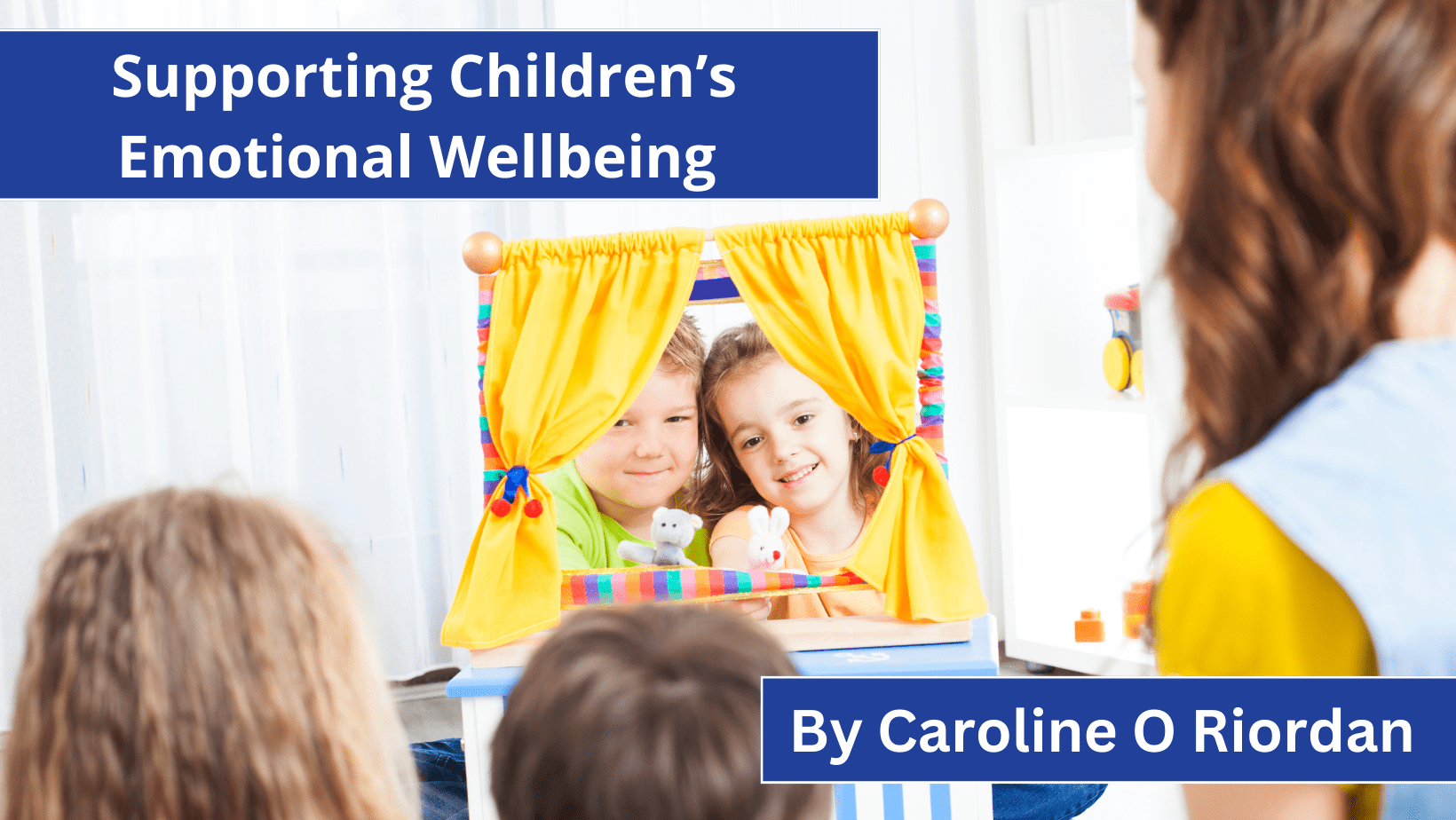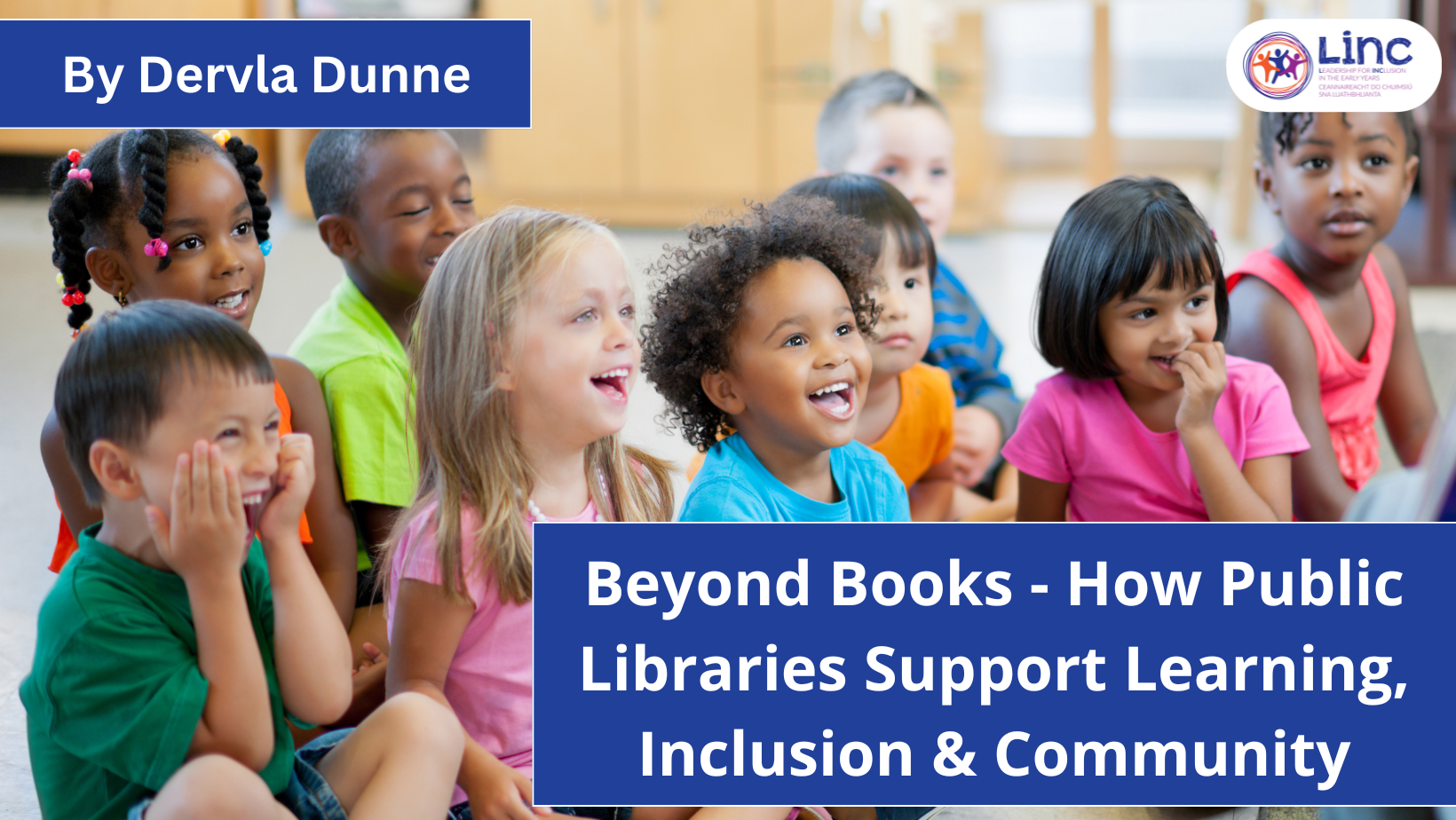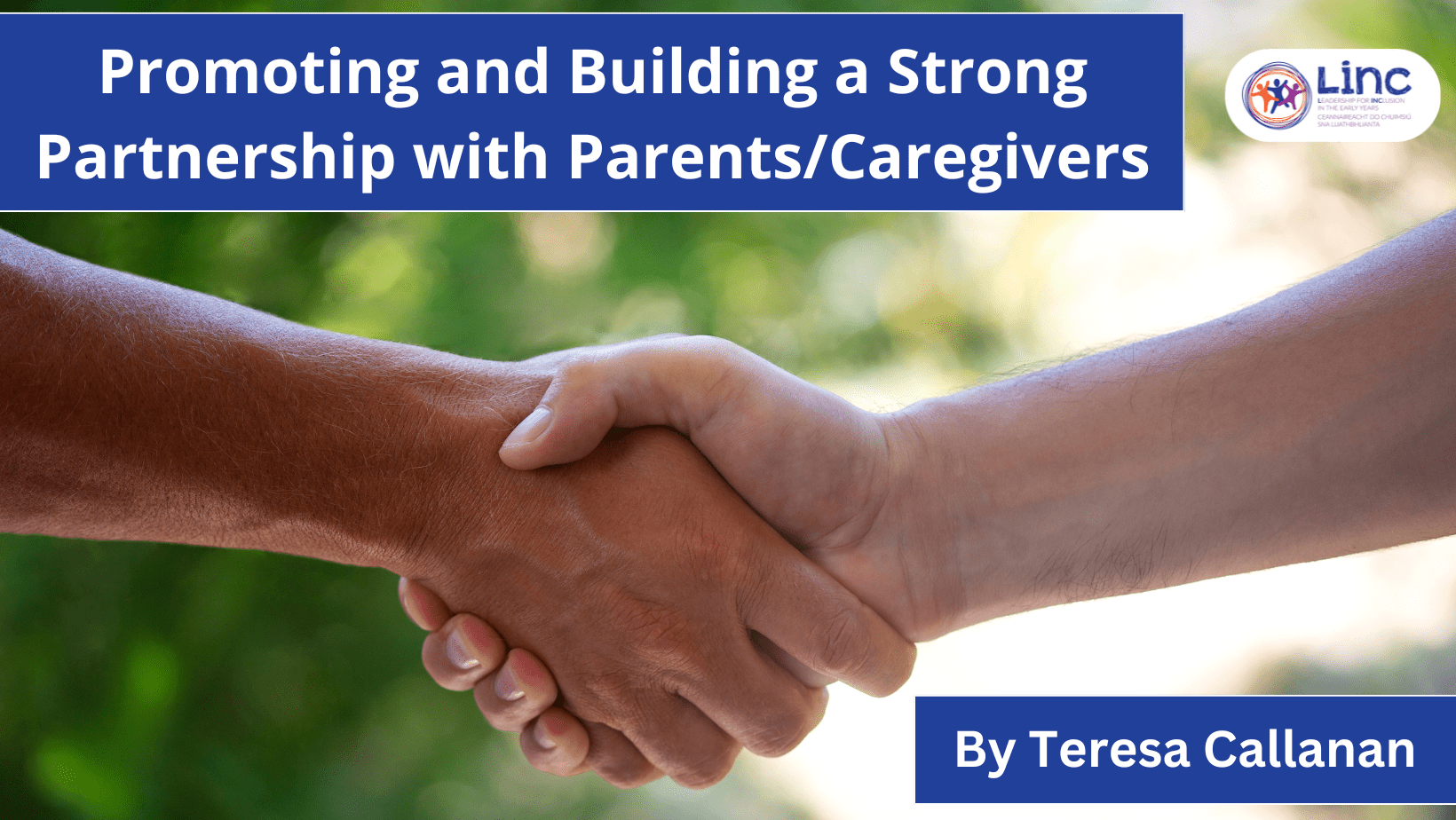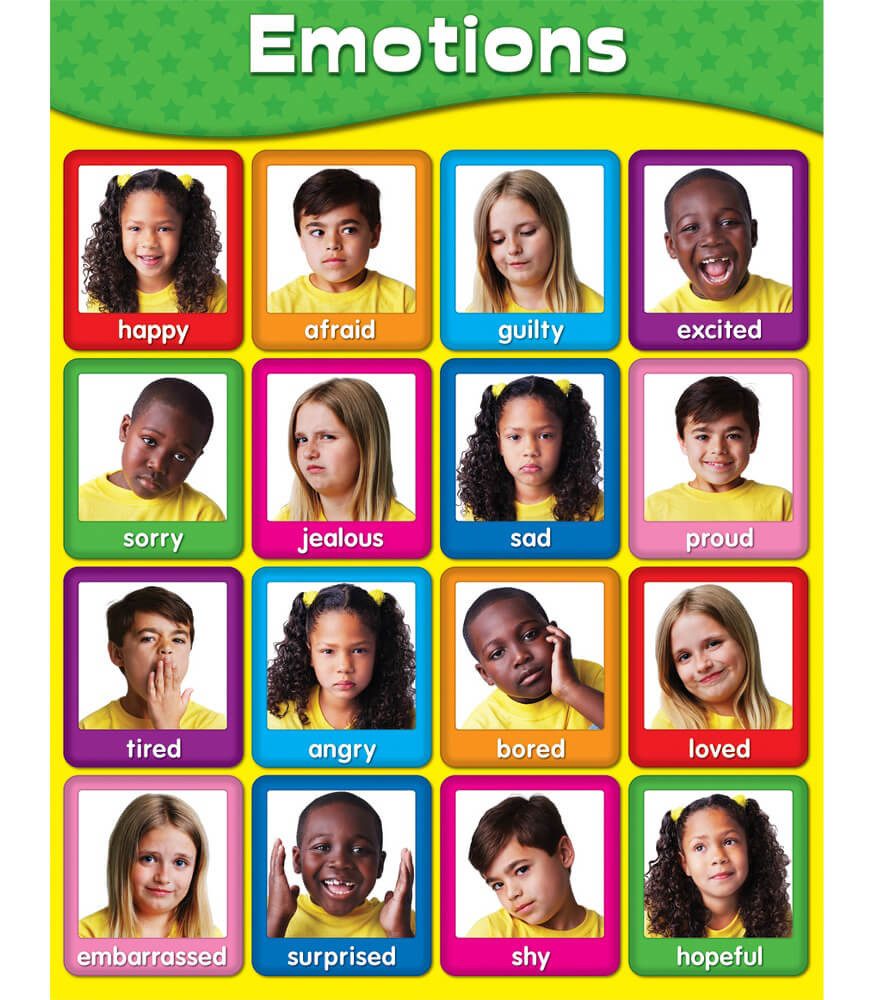Supporting Children’s Emotional Wellbeing
In this edition of the LINC Blog, Caroline O’Riordan explores how the key to unlocking a child’s full potential lies in nurturing their emotional well-being and as an Early Years Specialist (EYS) with Better Start, Caroline guides us on a journey toward creating a supportive and emotionally enriching environment for children.

Within early childhood environments, children may require support to develop emotional literacy, especially during times of conflict or when they encounter challenges. Early years educators play a significant role in creating supportive learning environments that assist children in becoming confident and competent in expressing, managing, and regulating their emotions appropriately. Both Aistear and Siolta highlight the importance of supporting children’s emotional well-being [1 & 2]. Research suggests that appropriate strategies can be introduced to young children as early as possible to ensure children are prepared for any challenges they encounter [3]. Furthermore, research suggests that the first three years of a child’s life are critical for learning coping skills and building resilience [4].
As an Early Years Specialist (EYS), I believe that children’s emotional well-being is fundamental to their overall happiness and meaningful participation in ELC, and I support early years educators to promote emotional literacy within their settings. The following suggestions may assist you in supporting children’s emotional development and well-being in your setting.
Environment
Create a nurturing and responsive emotional environment that focuses on feelings and emotions. This requires naming children’s emotions as they occur and modelling your own feelings. Check in with children daily to see how they are feeling. Visuals such as an emotions poster/cue cards could be used to support these discussions. Having a key worker system, as well as a visual daily routine and minimizing transitions, will also give children a greater sense of security and predictability, thus supporting their emotional well-being. Below is a resource recommended by the Access and Inclusion Model (AIM), to support children express and understand various emotions.
Explore Emotions Through Play
Play such as pretend play, symbolic play, role play, and imaginary play can provide valuable learning opportunities to discuss feelings and emotions. For example, during play in the home corner, suggest that the baby is feeling sad and ask individual children open ended questions regarding why the baby may be sad and how they can help the baby feel happy. Below is a resource created by First5 Ireland on Role Play/Pretend Play.
Socio-dramatic Play/Puppets
Puppets can be a fun means to enable children to explore emotions and process difficult feelings. Puppets can be used in a variety of ways, for example during circle time, small group time, during transitions and to support conflict resolution. Setting up a puppet show area in your classroom with appropriate materials, props and puppets may encourage children’s participation. Consider introducing a persona puppet to your setting as this can further support to develop empathy among the group.

Mindfulness
Mindfulness strategies and breathing techniques can promote relaxation and self-regulation. Common techniques include yoga, belly breathing, mind jars, and finger breathing. Barnardos have developed a free ebook titled ‘Mindfulness in Early Learning and Care’ which contains many useful strategies that could be introduced into your setting. You can access the ebook here.

Worry Time
Introduce ‘worry time’ or a ‘worry bear/jar’. Encourage children to share their worries during ‘worry time’. This could take place during small group time. The early years educator can write down the children’s worries and each child can give their worry to the ‘worry bear’ or place them in the ‘worry jar’. Early years educators can help children to identify, acknowledge and name the children’s emotions during ‘worry time’.

Story Time/Social Stories
A powerful tool in supporting children’s emotional wellbeing is through the magic of storytelling. Story time not only captivates young minds but also serves as a valuable gateway to understanding and expressing emotions. Source suitable books which will help children to explore emotions. Developing your own social stories can also be effective in supporting children deal with specific challenges such as transitions, turn taking and conflict resolution.

Cozy Corner – Quiet Space
In the bustling energy of an Early Learning and Care (ELC) environment, the importance of a designated Quiet Area cannot be overstated. This carefully curated space serves as a sanctuary, providing children with a comforting retreat when emotions become overwhelming. Ensure your setting has a comfortable and inviting cozy corner/quiet area which children can be encouraged to go to when they are feeling emotionally overwhelmed. This area can include sensory materials for the children to explore.

Outdoor Play
In the vibrant tapestry of Early Learning and Care (ELC) environments, the outdoor play area stands as a dynamic canvas where children can paint their experiences with the broad strokes of nature. Recognising the profound impact of outdoor play on self-regulation and emotional well-being, it becomes imperative to not just allocate time for it but to intentionally integrate it into the fabric of the Early Childhood Care and Education (ECCE) session. Play in the outdoor learning environment provides children with opportunities to engage in gross motor activities which further promotes self-regulation and emotional well-being. Provide children with ample opportunities to access the outdoor area throughout the ECCE session.

In conclusion, supporting children’s emotional wellbeing is a collaborative effort. The strategies suggested in this blog are a starting point for consideration. I encourage you to reflect on your practices and you might implement some of these approaches in your ELC setting. Together, as educators, parents, caregivers, and community members, we have the power to create a nurturing and emotionally rich environment. The impact of our collaborative efforts will resonate not only within the walls of the ELC setting but also in the hearts and minds of the young learners we guide towards a future of emotional strength and confidence. Let’s work together to create emotionally resilient and confident young learners.
Remember, a child’s emotional wellbeing today shapes their future happiness and success!
References
[1] National Council for Curriculum and Assessment (NCCA) (2009) Aistear: The Early Childhood Curriculum Framework. Dublin. NCCA.
[2] Centre for Early Childhood Development and Education (CECDE) (2006) Síolta, The National Quality Framework for Early Childhood Education. Dublin: Centre for Early Childhood Development and Education.
[3] Archdall, K., & Kilderry, A. (2016). Supporting Children’s Resilience: Early Childhood Educator Understandings. Australasian Journal of Early Childhood, 41, 58 – 65.
[4] Walsh, O., and Kane, J. (2015) Nurturing Resilience to help Children flourish in the Early Years’. International Journal of practice-based learning in Health and Social Care, 3 (2). 77-85. doi:10.1852/ijpblhsc.v3i2.198

Caroline O'Riordan
Early Year Specialist on the AIM Programme
Caroline completed a BA Level 8 Degree in Early Childhood Studies in University College Cork in 2006 and the MA of Arts in Leadership and Advocacy in the Early years in IT Sligo in 2021. Caroline has experience working with children of all ages and stages of development in Early learning and Care settings including full day care and sessional services. She has worked as a manager of a sessional preschool and afterschool service. Caroline currently works as an Early Years Specialist with Better Start’s Access and Inclusion Model (AIM) and actively supports and promotes the access, inclusion and participation of children in ECCE settings.
You may also like:

Beyond Books – How Public Libraries Support Learning, Inclusion and Community
Beyond Books - How Public Libraries Support Learning, Inclusion & Community In this edition of the LINC Blog, “Beyond Books – How Public Libraries Support Learning, Inclusion & Community”, Dervla Dunne, A/Librarian at Wexford Town Library, takes us on a tour of...

The LINC Programme and MIC Support Shine’s 2025 Green Ribbon Campaign: Step Up to Stamp Out Stigma
The LINC Programme and MIC Support Shine’s 2025 Green Ribbon Campaign: Step Up to Stamp Out StigmaThe Leadership for Inclusion in the Early Years (LINC) Programme and Mary Immaculate College (MIC) are proud to once again support the national Shine Green Ribbon...

Promoting and Building a Strong Partnership with Parents/Caregivers
Promoting and Building a Strong Partnership with Parents/Caregivers In this edition of the LINC Blog, LINC Graduate Teresa Callanan explores the importance of building strong partnerships with parents and caregivers. She reflects on how open communication, trust, and...


